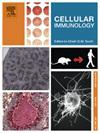Progress of exosomes in regulating tumor metastasis by remodeling the pre-metastatic immune microenvironment
IF 2.9
4区 医学
Q2 CELL BIOLOGY
引用次数: 0
Abstract
Exosomes play an important role in the metastatic microenvironment, acting as a transmission belt that facilitates intercellular communication. By delivering proteins, nucleic acids, and other substances in the exosomes, they can change the function of the receptor target cells, change the microenvironment of the metastatic site, and promote the colonization of the tumor cells, thus promoting cancer metastasis. The interaction between tumor cells and the surrounding microenvironment is complex, with exosomes serving as key facilitators of crosstalk between the primary tumor microenvironment and the pre-metastasis microenvironment. Despite many current studies to explore exosomes, we still do not have a detailed understanding of the role and mechanism of exosomes in the pre-metastatic immune microenvironment, and there are many challenges in the clinical application of exosomes. In this paper, we summarize the role of exosomes in regulating the pre-metastatic immune microenvironment and its mechanism, focusing on how exosomes regulate the function of immune cells in the pre-metastatic microenvironment to promote tumor metastasis. In addition, the potential application of exosomes in tumor immunotherapy and strategies for targeting exosomes are discussed. This will contribute to the immunotherapy of cancer metastasis and promote the clinical application of exosomes.
外泌体通过重塑转移前免疫微环境调控肿瘤转移的研究进展
外泌体在转移性微环境中发挥重要作用,作为促进细胞间通讯的传输带。它们通过在外泌体中传递蛋白质、核酸等物质,改变受体靶细胞的功能,改变转移部位的微环境,促进肿瘤细胞的定植,从而促进癌症转移。肿瘤细胞与周围微环境之间的相互作用是复杂的,外泌体是原发肿瘤微环境与转移前微环境之间串扰的关键促进因子。尽管目前有许多研究对外泌体进行了探索,但我们对外泌体在转移前免疫微环境中的作用和机制仍然没有详细的了解,外泌体的临床应用存在许多挑战。本文综述了外泌体调控肿瘤转移前免疫微环境的作用及其机制,重点阐述了外泌体调控肿瘤转移前免疫微环境中免疫细胞的功能,促进肿瘤转移的机制。此外,还讨论了外泌体在肿瘤免疫治疗中的潜在应用以及靶向外泌体的策略。这将有助于肿瘤转移的免疫治疗,促进外泌体的临床应用。
本文章由计算机程序翻译,如有差异,请以英文原文为准。
求助全文
约1分钟内获得全文
求助全文
来源期刊

Cellular immunology
生物-免疫学
CiteScore
8.20
自引率
2.30%
发文量
102
审稿时长
30 days
期刊介绍:
Cellular Immunology publishes original investigations concerned with the immunological activities of cells in experimental or clinical situations. The scope of the journal encompasses the broad area of in vitro and in vivo studies of cellular immune responses. Purely clinical descriptive studies are not considered.
Research Areas include:
• Antigen receptor sites
• Autoimmunity
• Delayed-type hypersensitivity or cellular immunity
• Immunologic deficiency states and their reconstitution
• Immunologic surveillance and tumor immunity
• Immunomodulation
• Immunotherapy
• Lymphokines and cytokines
• Nonantibody immunity
• Parasite immunology
• Resistance to intracellular microbial and viral infection
• Thymus and lymphocyte immunobiology
• Transplantation immunology
• Tumor immunity.
 求助内容:
求助内容: 应助结果提醒方式:
应助结果提醒方式:


